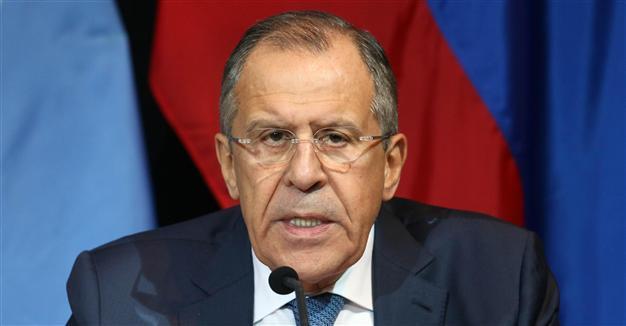Turkish and Russian foreign ministers to meet in Belgrade
ANKARA

Russian Foreign Minister Sergey Lavrov speaks during a news conference in Vienna, Austria, Saturday, Nov. 14, 2015. AP Photo
Turkish Foreign Minister Mevlüt Çavuşoglu will meet Russian counterpart Sergei Lavrov on the sidelines of an OSCE conference in Belgrade on Dec. 3-4 for the first face-to-face meeting between high-level Turkish and Russian officials since the downing of a Russian jet on Nov. 24.Lavrov had said on Dec. 2 that he would not refuse to meet his Turkish counterpart in Belgrade later this week.
Çavuşoglu proposed the meeting in Belgrade on Nov. 27. However, the Russian side, at the time, had not yet confirmed that the meeting would take place.
U.S. Secretary of State John Kerry will also attend the meeting in Belgrade.
Ties between Ankara and Moscow soured after a Russian bomber SU-24 was shot down by a Turkish F-16 along the Syrian-Turkish border, allegedly for violating Turkish airspace.
The intruding aircraft was allegedly warned about the violation 10 times within five minutes before it was shot down, according to the Turkish military.
The Russian plane crashed in northern Syria and a crew commander, Oleg Peshkov, was killed by Turkmen groups while descending with a parachute.
Moscow protested Ankara and promised serious consequences to Russian-Turkish relations, including economic sanctions. Russian President Vladimir Putin called the destruction of the plane “a stab in the back by the accomplices of terrorists.”
As Ankara has been trying to defuse tension, Çavuşoğlu extended condolences to Lavrov in a telephone conversation just before the Russian foreign minister canceled a visit to Istanbul scheduled for Nov. 25.
Putin refused a call by President Recep Tayyip Erdoğan to meet at a United Nations climate change conference in Paris on Nov. 30.
Turkey’s president earlier said Turkey would have “taken a different approach if it had known the jet was Russian.”
“The warning would have been different and the warning period would have been prolonged,” he said.
















